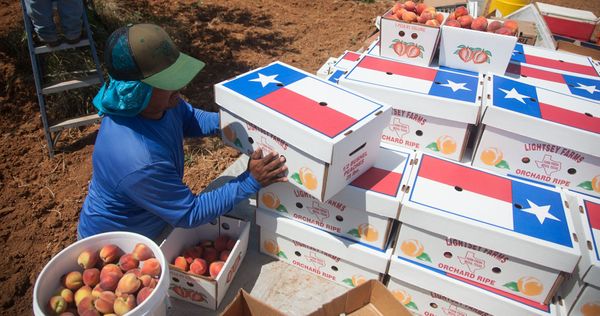The Texas Legislature, which adjourned last week, delivered multiple wins for local agriculture and the fight against food insecurity. Three of our top priorities passed this session. If signed by the Governor, the following reforms will become law:

2019 Legislative Session Wrap-up
Alex Canepa, Farmers' Market and Policy Advocacy
Farmers’ market permit reform
Starting September 1, farmers cannot be charged more than $100 per year for permit fees by each jurisdiction in which they sell their products. Unlike large monoculture wholesale farms, direct-market farmers (farmers’ market farmers and those that sell directly to restaurants) do business in perhaps a dozen ‘public health jurisdictions’ (Austin, Sunset Valley, Bee Caves, Pflugerville etc.) throughout the course of the year. If each of those jurisdictions charge a $622 annual permit fee on your farm, it can get really expensive. These fees also fly counter to Austin’s goal of supporting a strong local/regional food system. Occupational licensing and permitting reform for small businesses isn’t the most glamorous issue, but we feel that it will go a long way to increasing the availability of locally-grown food in Texas and improving our rank nationwide.
Expanded cottage food laws
One way that farmers can make more money and waste less food is by preserving fruit and vegetables through pickling, fermenting, canning, and freezing. This legislature approved each of these practices as safe--if done according to legally prescribed best practices--and thus subject to no permit at all. The state’s Cottage Food Law is an essential component of the profitability of small farms and the startup food businesses that want to source from them.
Improvements to SNAP incentives
On the heels of $250 million in federal funding for SNAP Incentive Programs, the Legislature passed a bill (SB 1834) which directs the Texas Department of Health and Human Services to study and make a formal set of recommendations to the next Legislature (set to convene in January 2021) on the state’s existing SNAP Incentive Programs work. These recommendations will be guided by a panel of experts in the field of food insecurity and direct-marketing agriculture to ensure that they reflect the priorities of both food insecure Texans and the state’s farmers.
If, as they say, “Victory has a thousand mothers” two deserve a special shout out. Farm and Ranch Freedom Alliance (FARFA) Executive Director Judith McGeary and American Heart Association State Policy Director Shelby Massey. FARFA got so many bills across the finish line this session, we’ll have to devote future blogs/newsletter articles to them. While winning is fun, this session’s most lasting success will doubtless be the relationship that SFC built with our coalition allies throughout the process. Let the 2021 planning begin!
